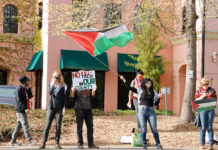December 25 is, of course, Christmas Day, the celebration of the birth of Jesus Christ. Christians believe that this birth is the turning point, the very center of human history. From it we count the years forward and backward, B.C., before Christ, and A.D., Anno Domini, Year of our Lord. We believe that the baby born in Bethlehem is Emmanuel, God with us, fully human from the flesh of His Mother Mary, and fully God by the power of the Holy Spirit. We also know, along with this and because of this, that every birth is sacred. Carl Sandburg, in his uniquely down to earth way, said that a baby is God’s opinion that life should go on. When my older brother’s first child was born he called me in the middle of the night to tell me that his son’s birth, at which he was present, was the closest thing to a miracle he had ever seen. I had the joy of witnessing the births of my five children and I agree with Carl Sandburg and my brother and certainly with Mary and Joseph. Birth is a miracle, it is God’s opinion, it is God with us.
On December 25, the day and the eve of the day, Christian churches are full. O Come all ye faithful; Angels we have heard on high; Silent Night, Holy Night. Churches are not so full on December 26 or December 28. Unless they fall on a Sunday, on these days most churches do not hold a public service. Nevertheless, the 26th and 28th are holy days in the traditional Church calendar. December 26 is the Feast of St. Stephen and December 28 is Holy Innocents’ Day. St. Stephen, whose story may be read in Chapters six and seven of the Acts of the Apostles in the New Testament, is a young man who was stoned to death because of his loyalty and devotion to Jesus. The Holy Innocents of Bethlehem are the babies, two years old and younger, who were slaughtered by soldiers at the orders of King Herod. The brief account of this horror is recorded in the Gospel of St. Matthew, Chapter 2, verses 16-18. The Emperor Augustus said of Herod that it was better to be his dog than to be his son. Herod did not hesitate to order the murder of family members, political opponents, and, in this case, babies when he considered them to be threats to his power. He had heard that an ancient prophecy (Micah 5:2) about a King to be born in Bethlehem had been fulfilled and so the babies died.
Why on earth would the Church want to remember such horrors, the stoning of a sincere young man, and the slaughter of babies? Why? Especially why at Christmas time? We remember Stephen and the Babies because it happened and because we must never forget. We remember it at Christmas because, for Christians, the deaths of Stephen and the Babies are inseparable from the birth of Jesus, inseparable from His life, His suffering, His death, and His resurrection. The slaughter of innocent children of Newtown is in our hearts and minds. Time passes and without some help one may forget. For me, from now on, the Holy Innocents of Bethlehem will always include the Holy Innocents of Newtown, and St. Stephen will remind me of the fine, heroic young people they should have grown up to be.
Canon Marvin Bowers is a retired clergyman and may be reached at frmarvinbowers @gmail.com.
61.6
F
Healdsburg
April 19, 2025







